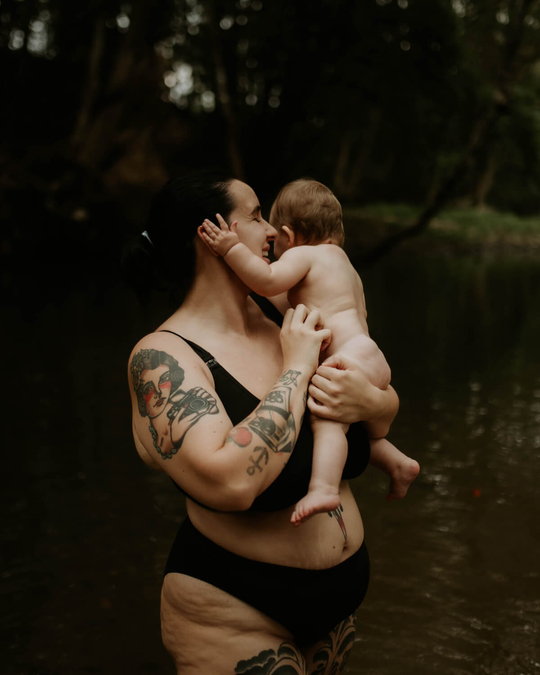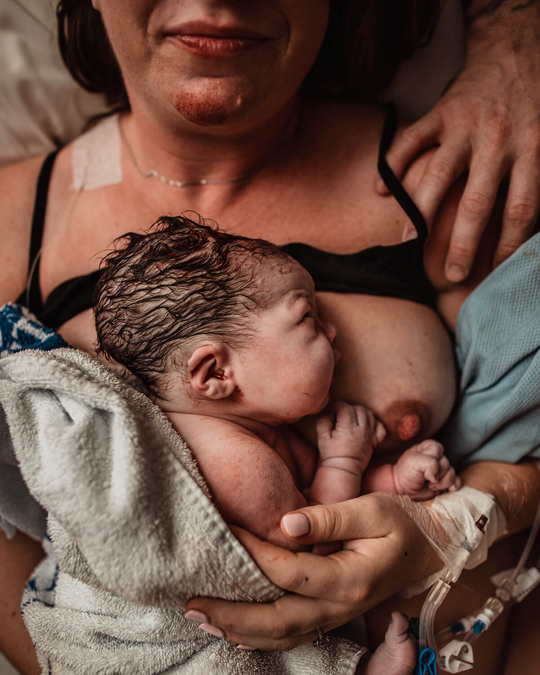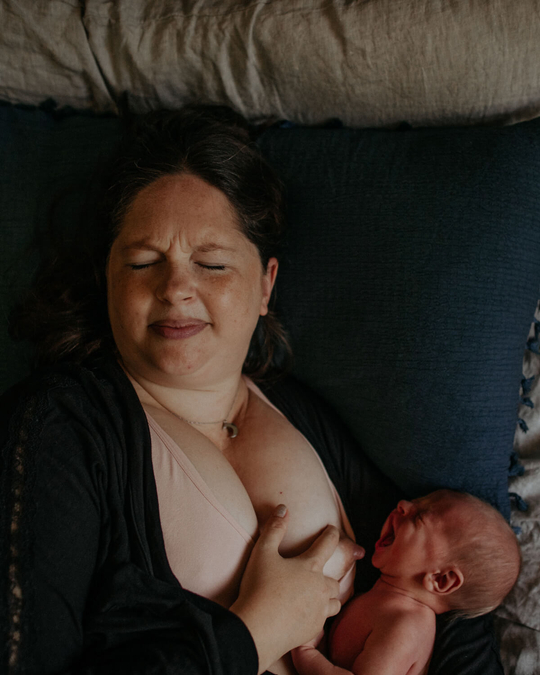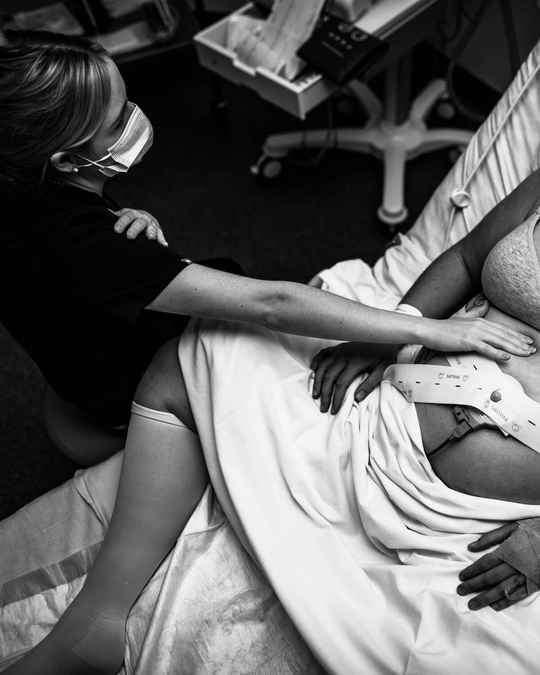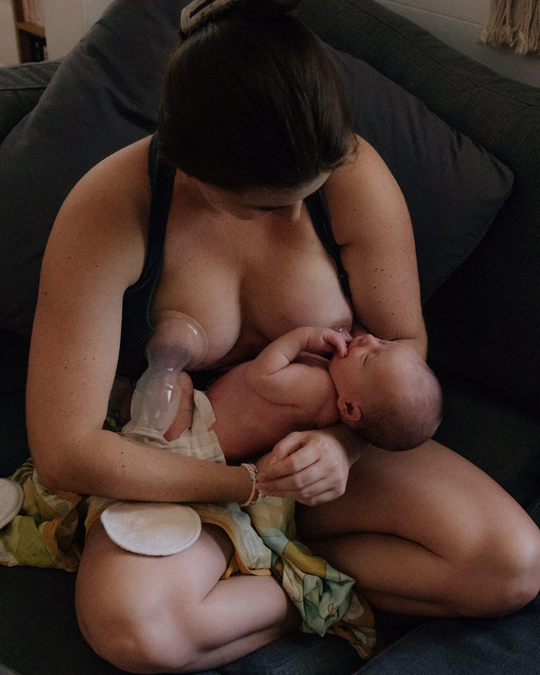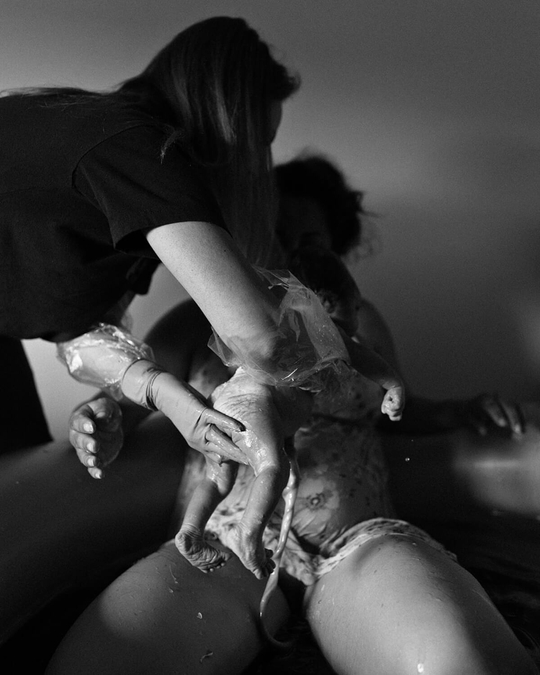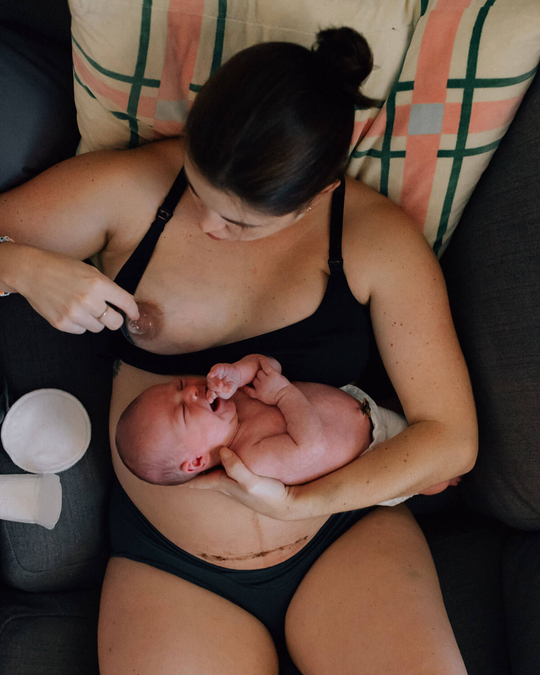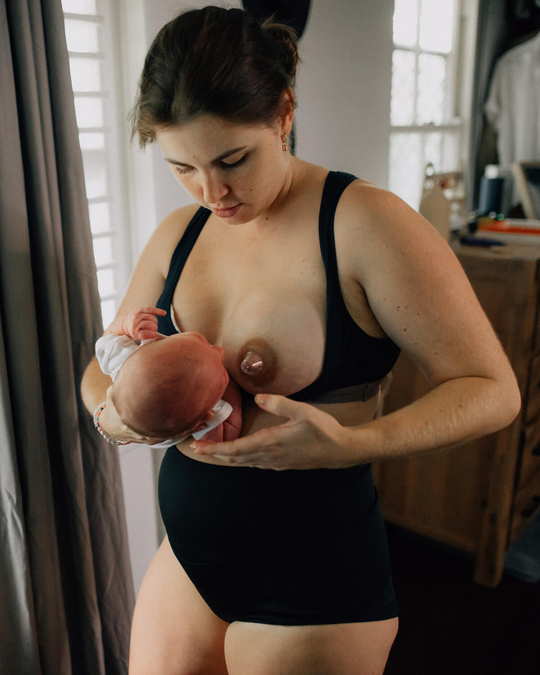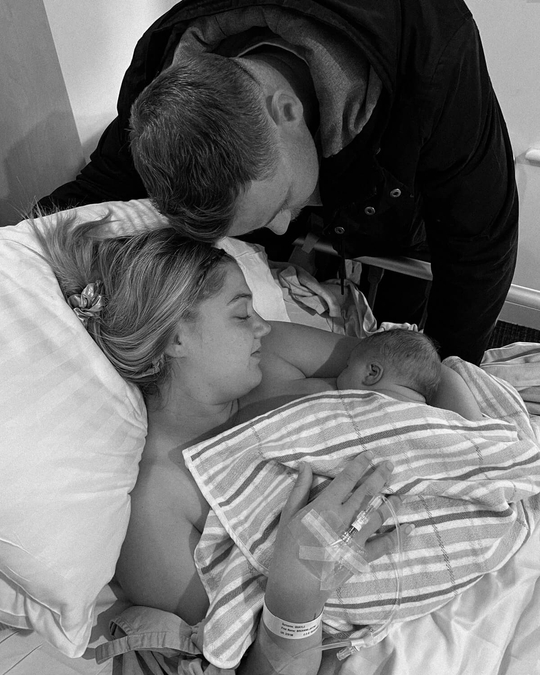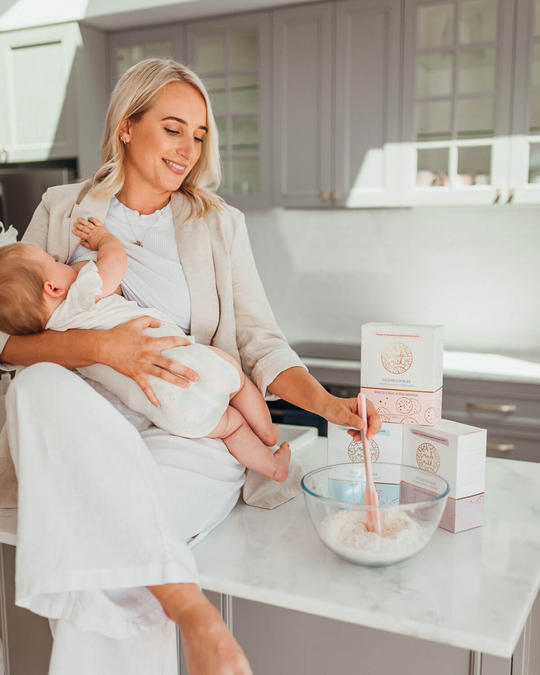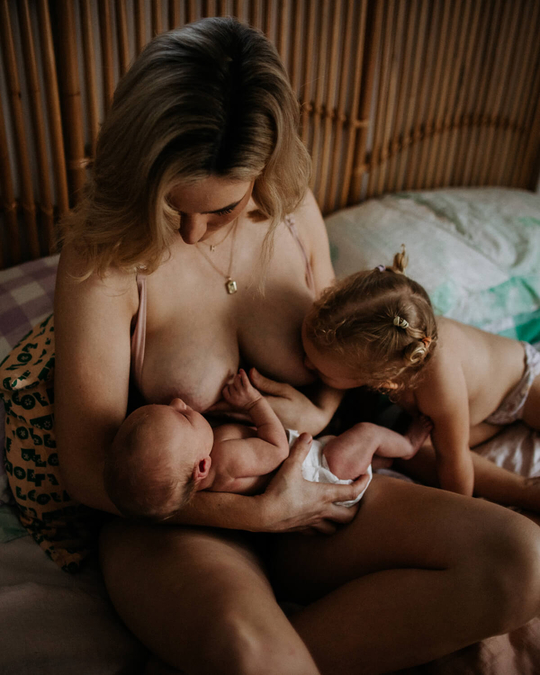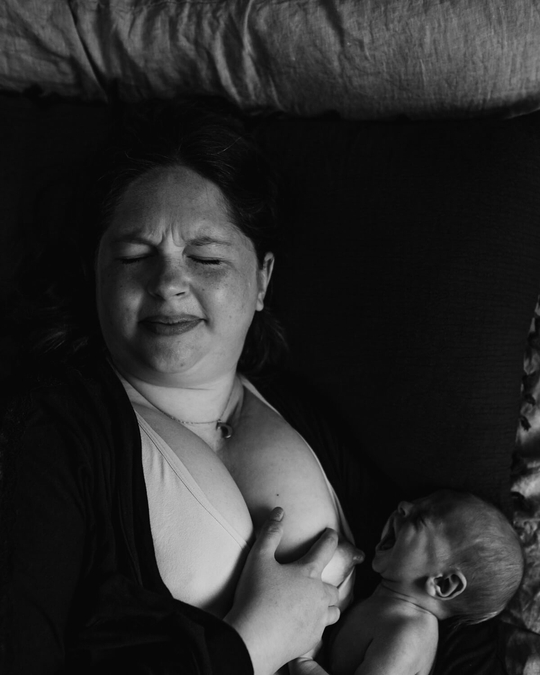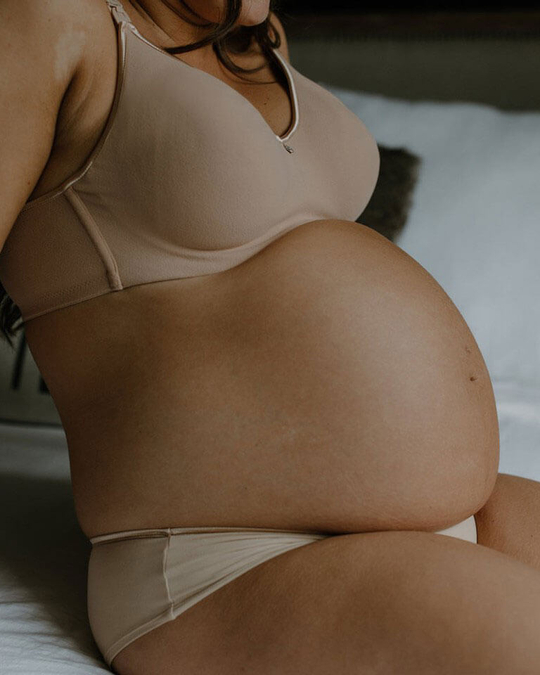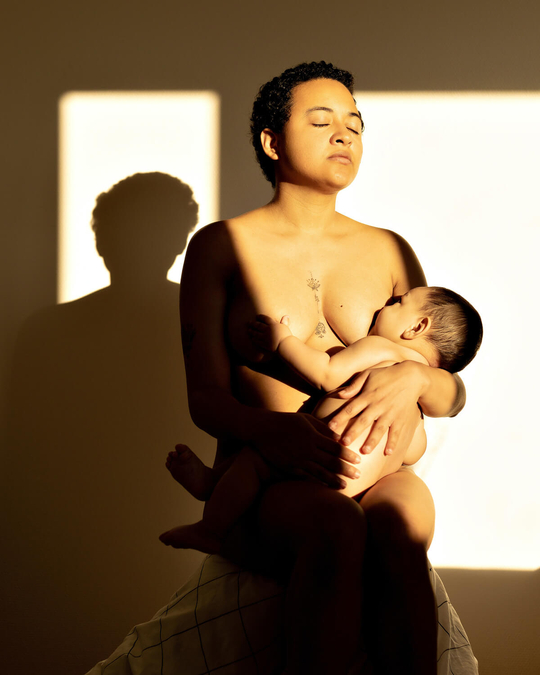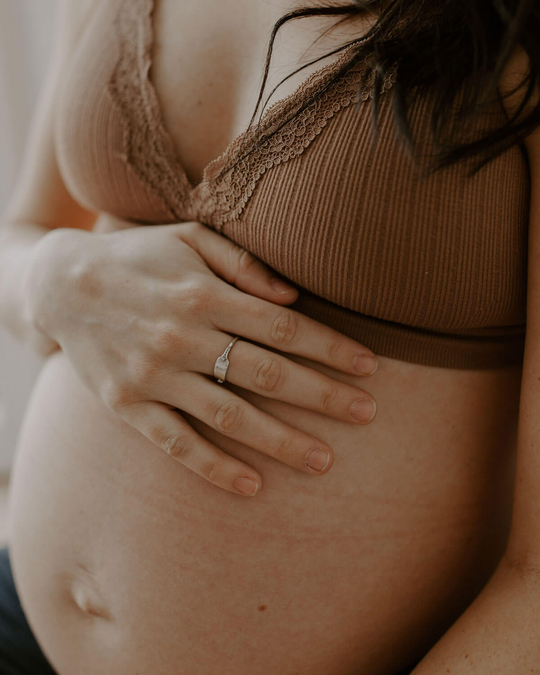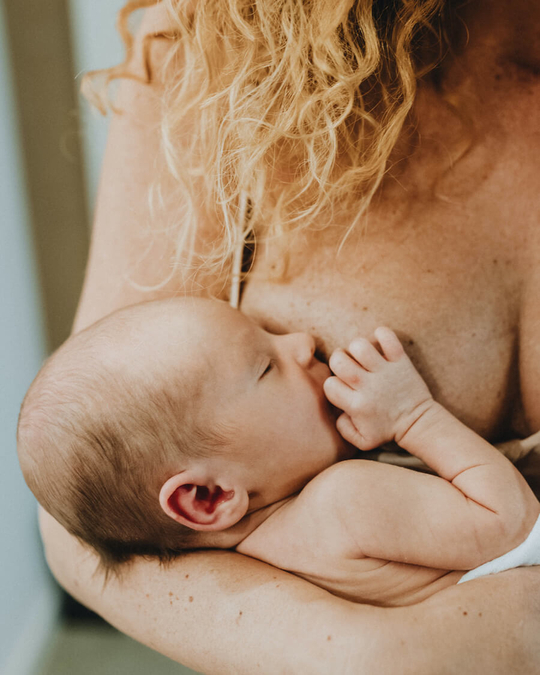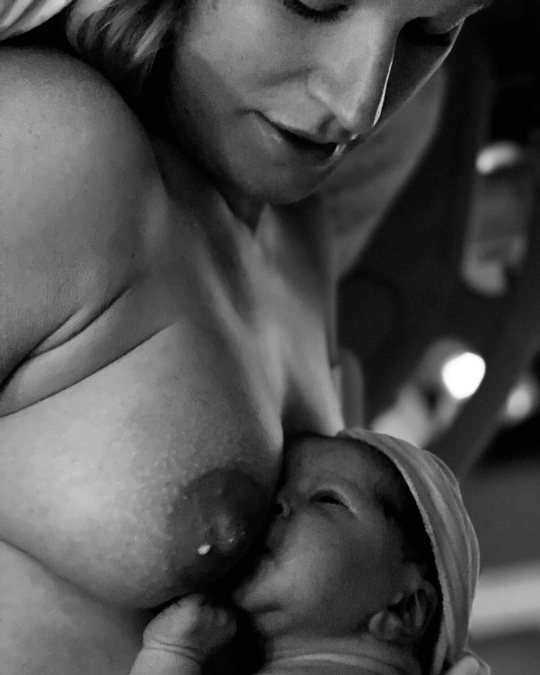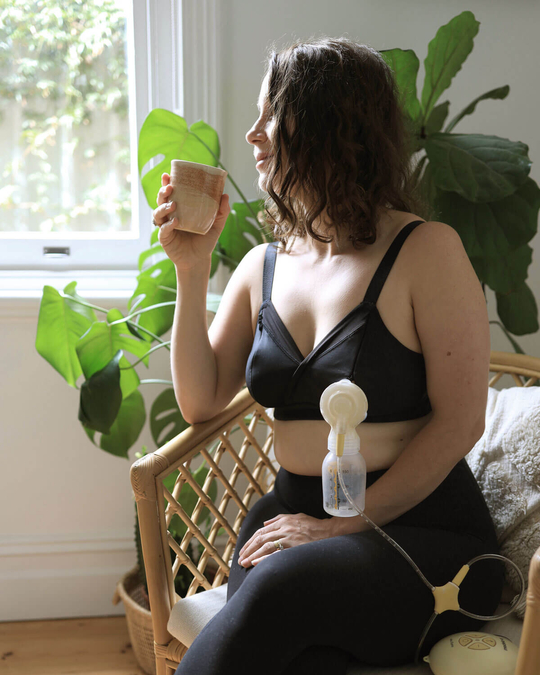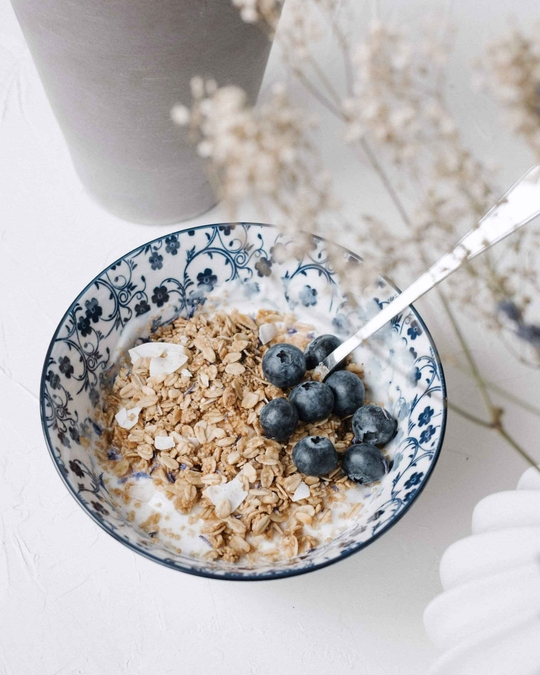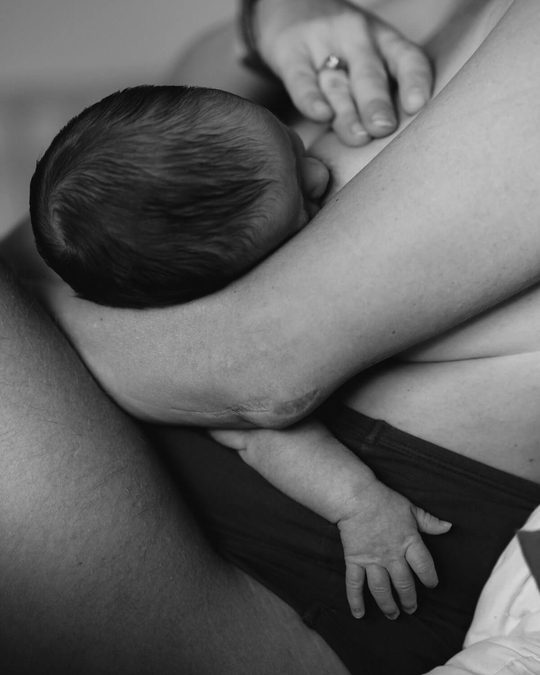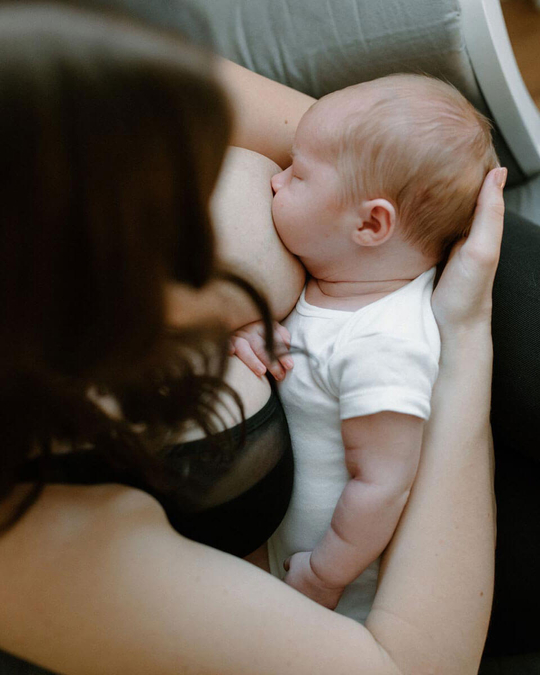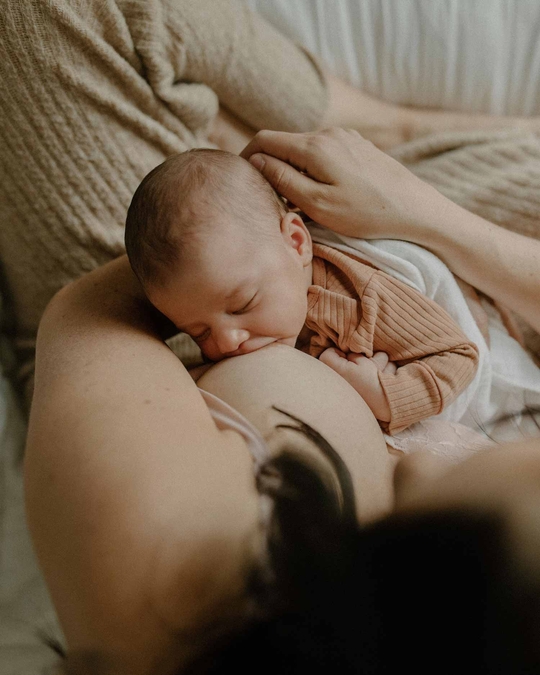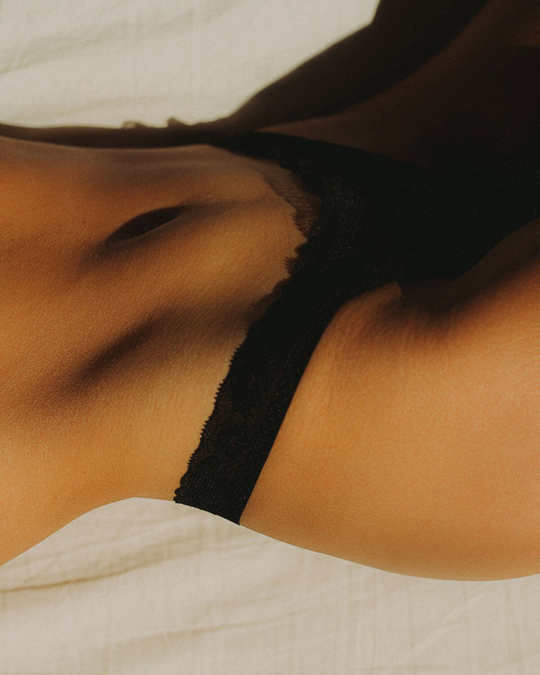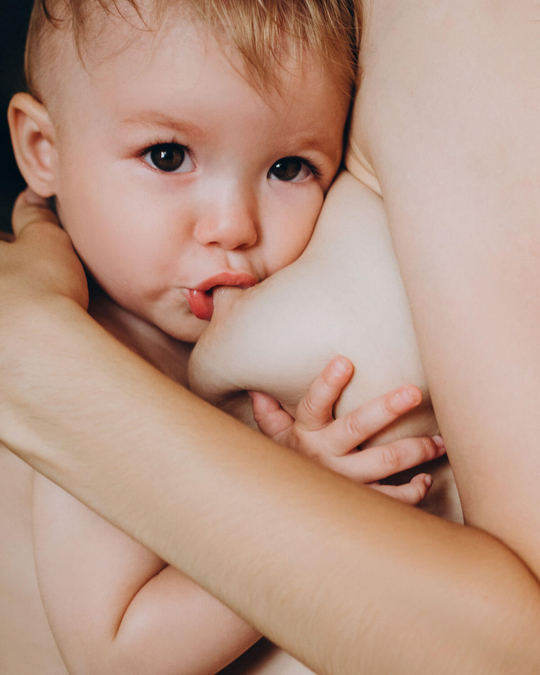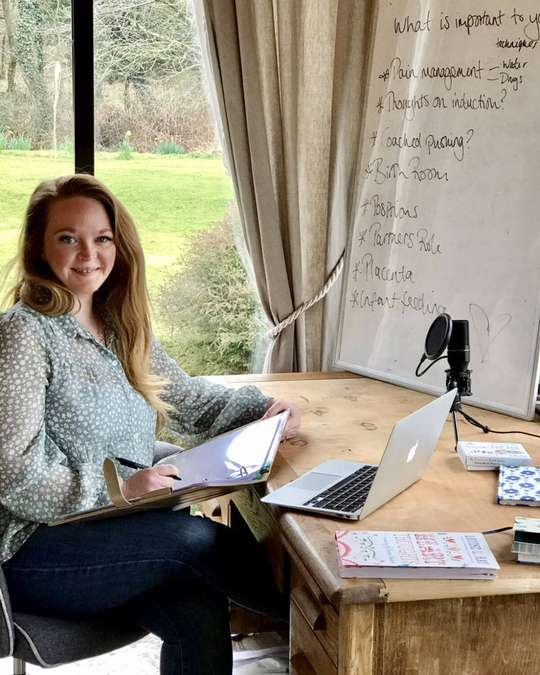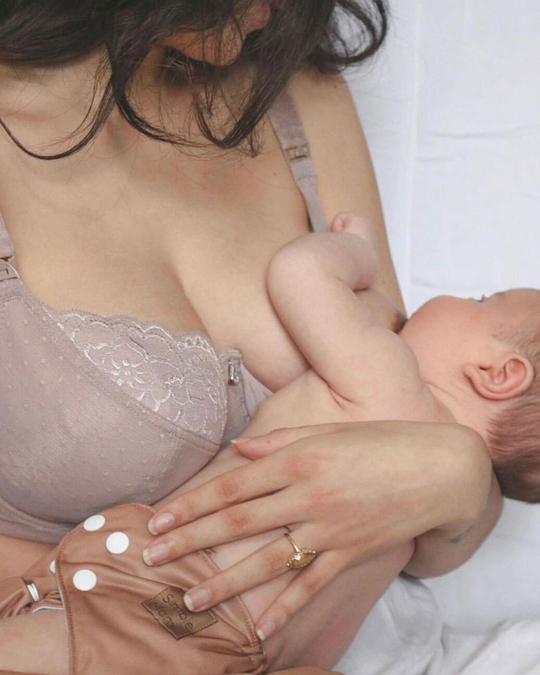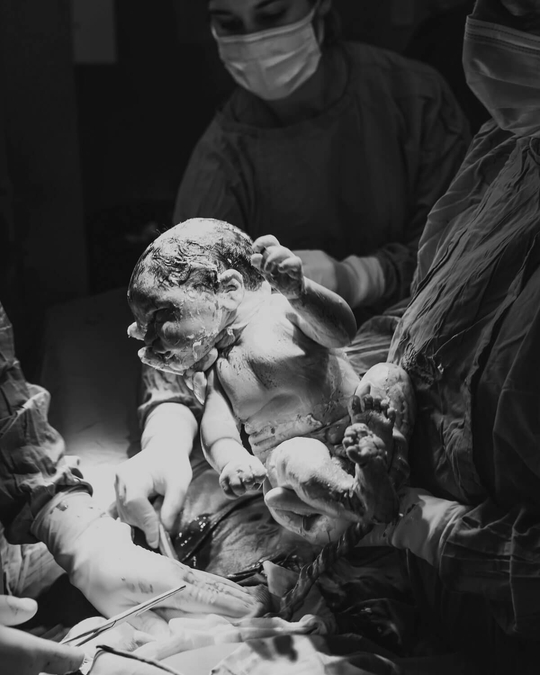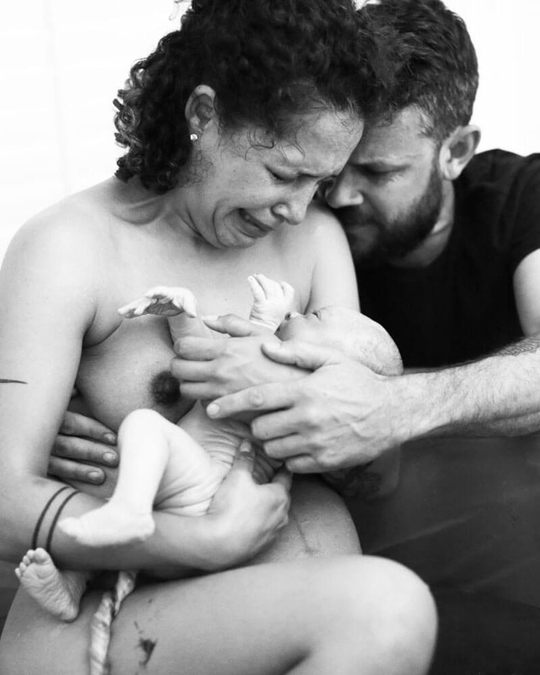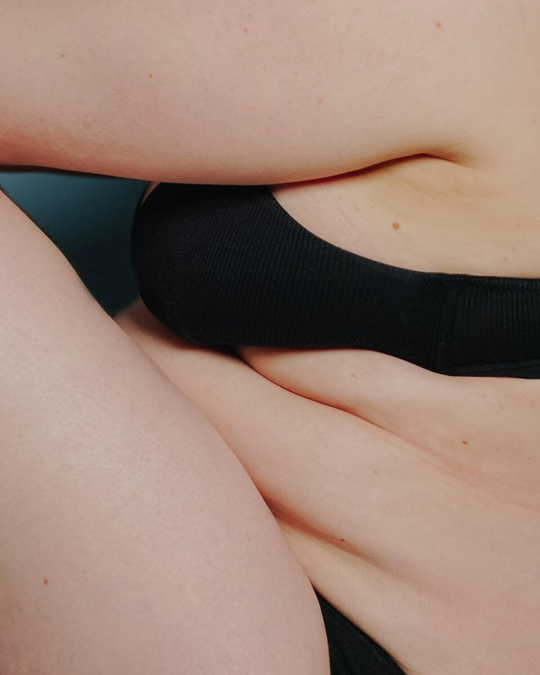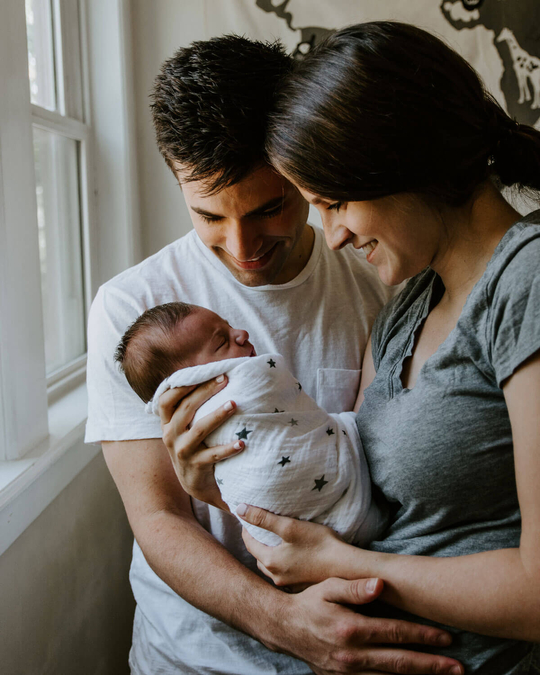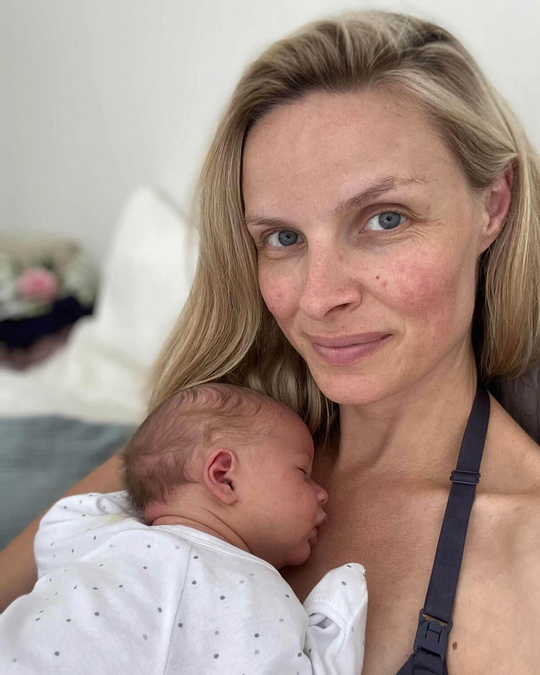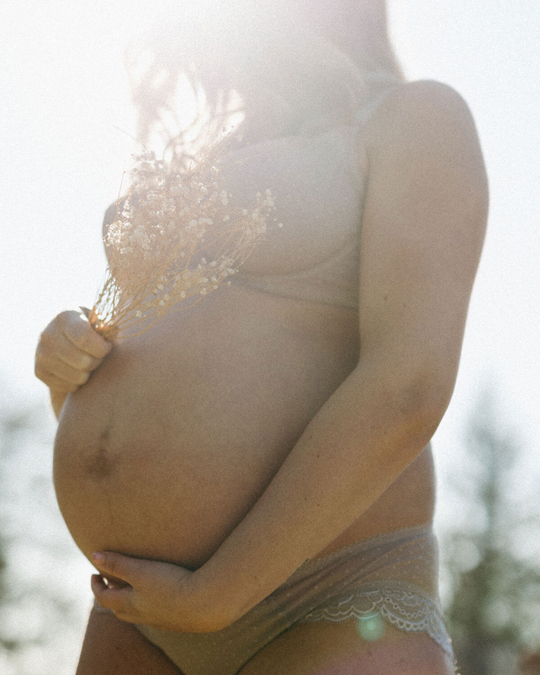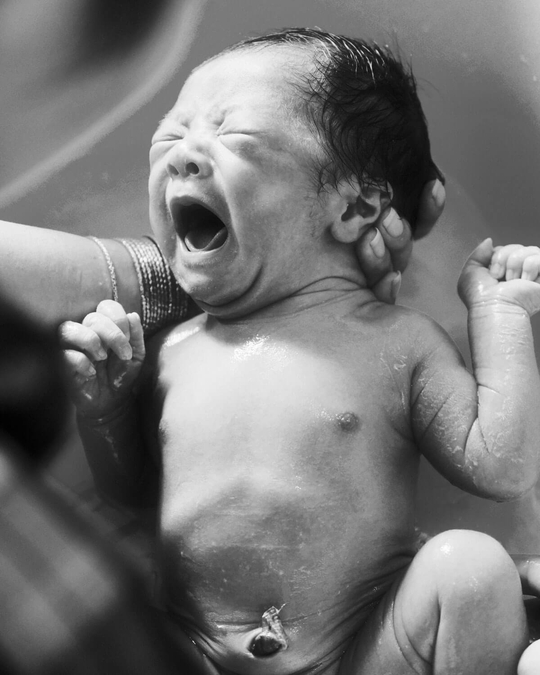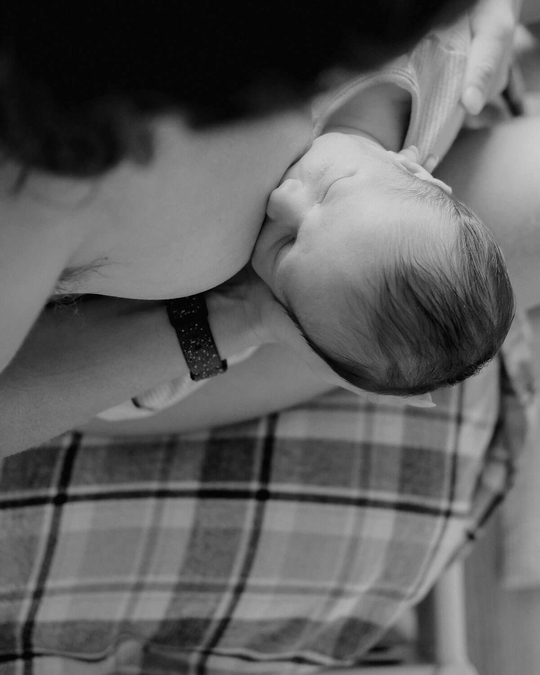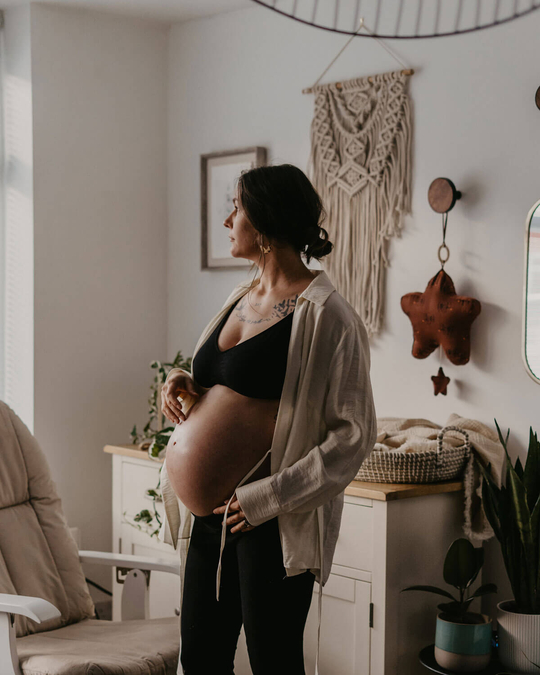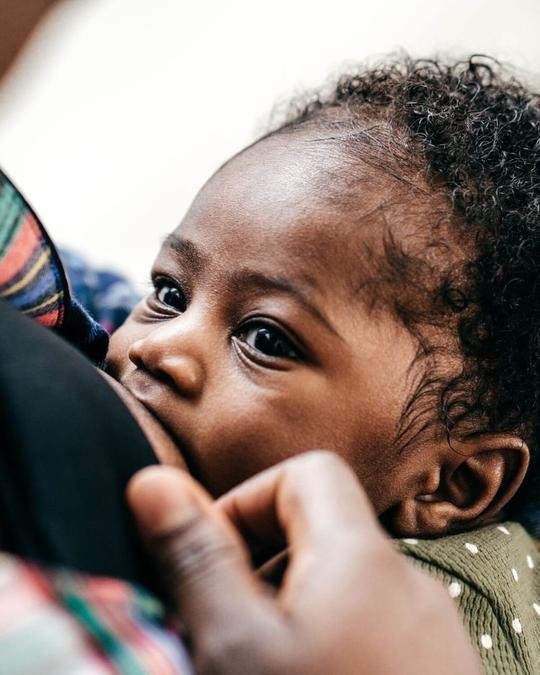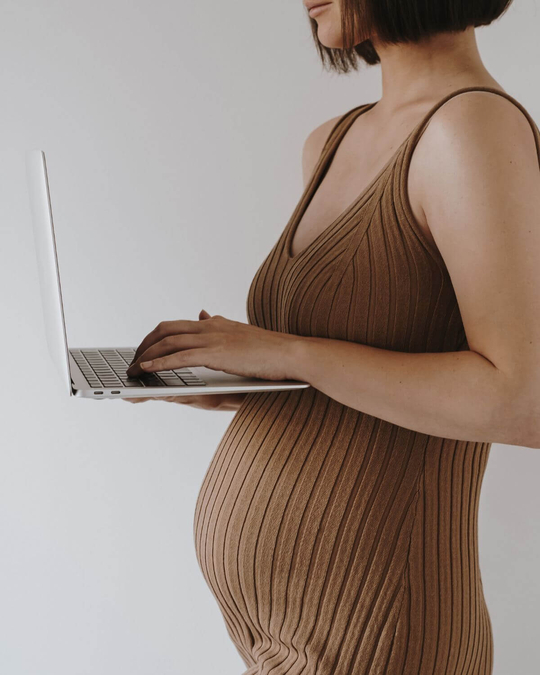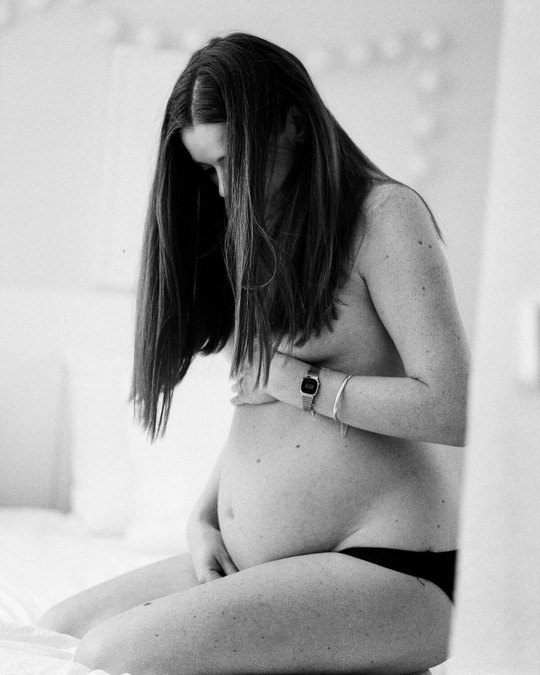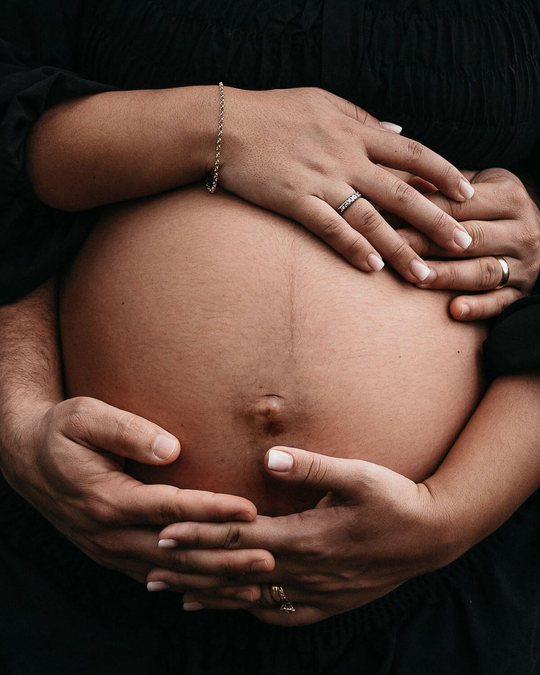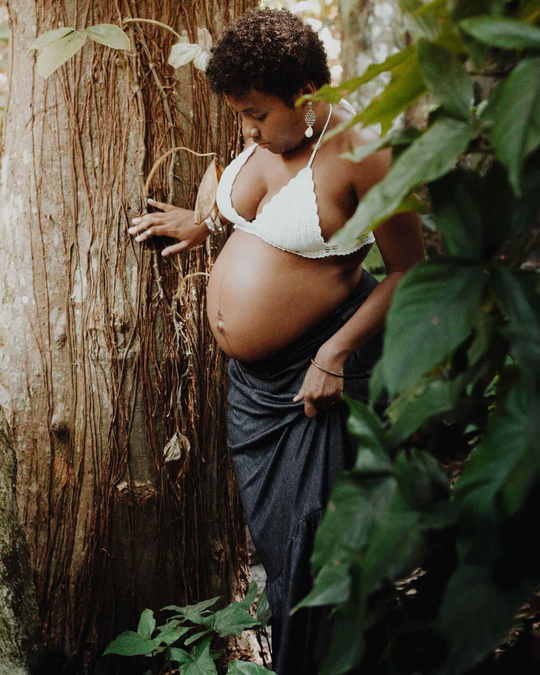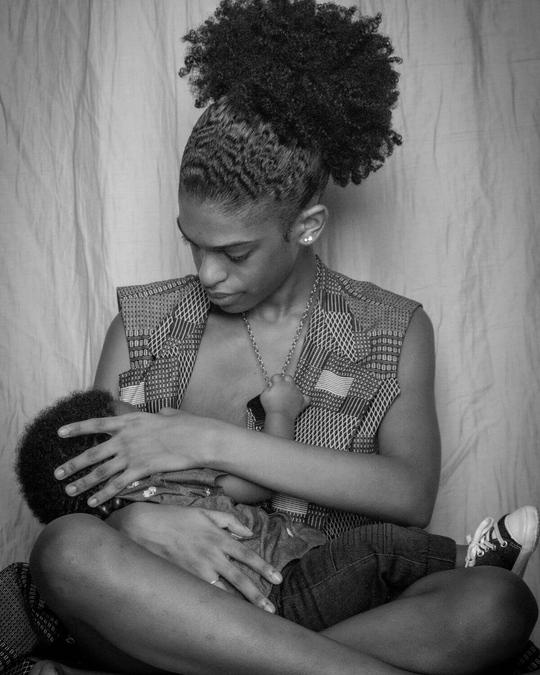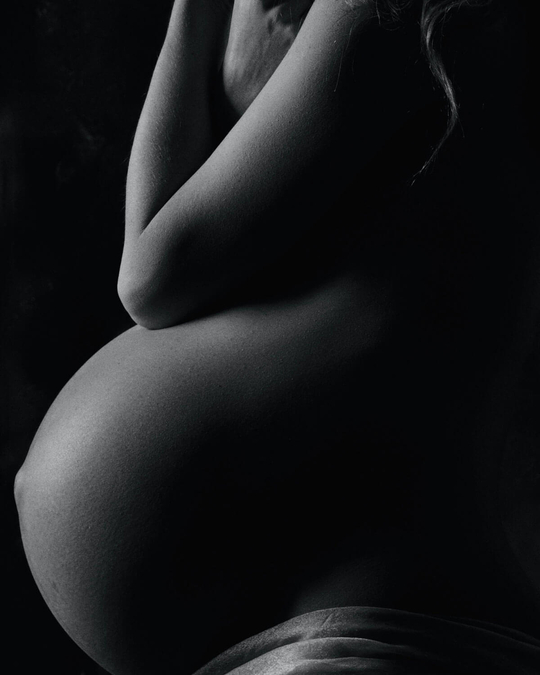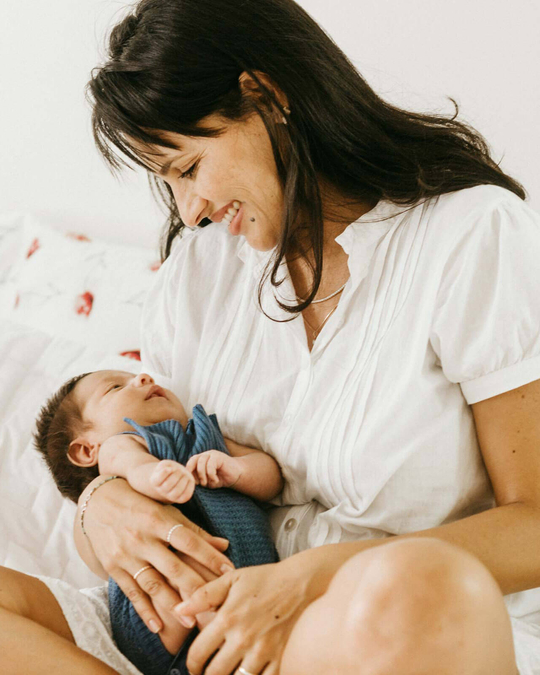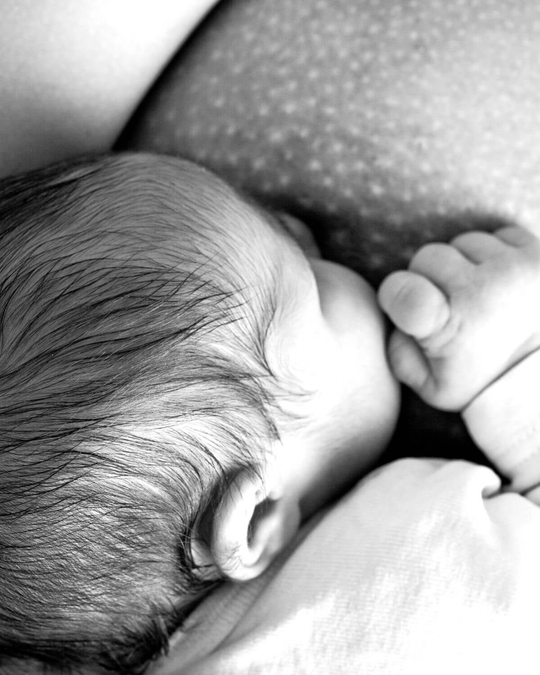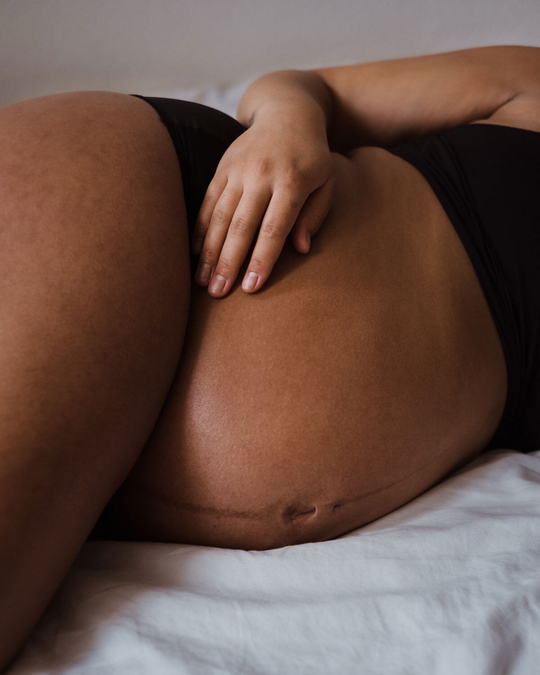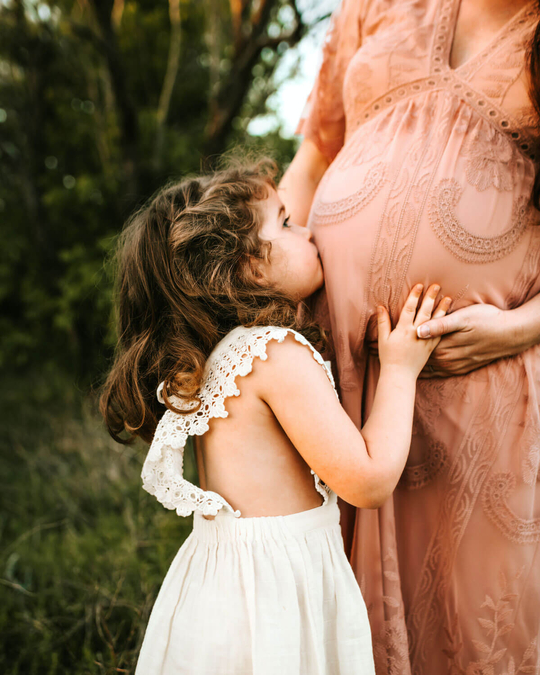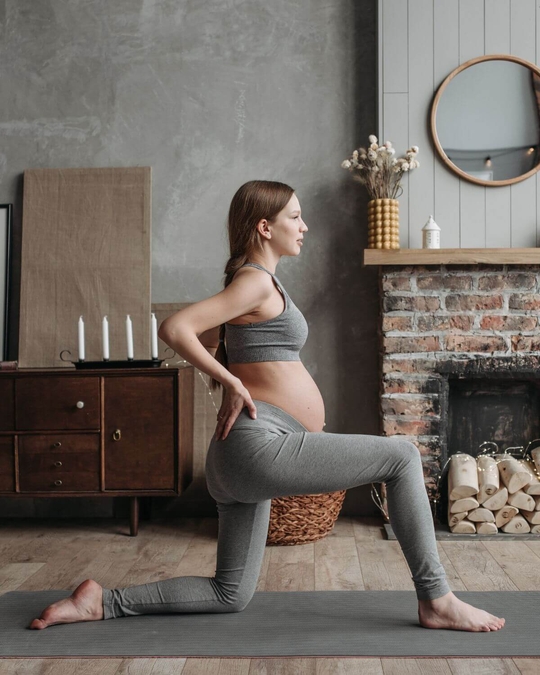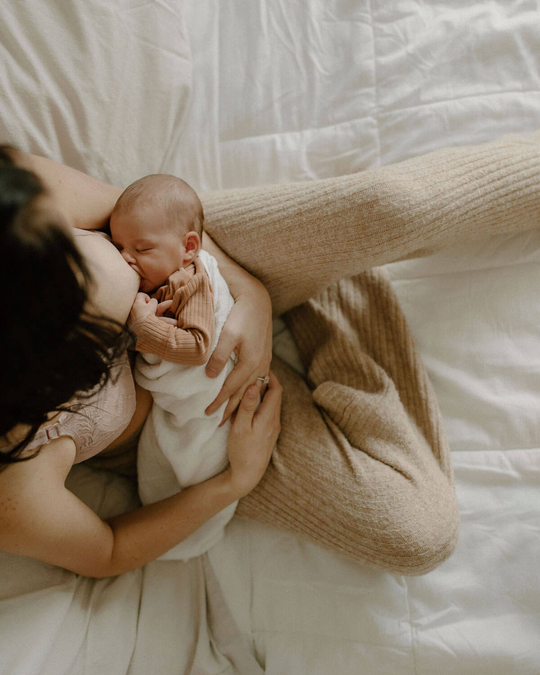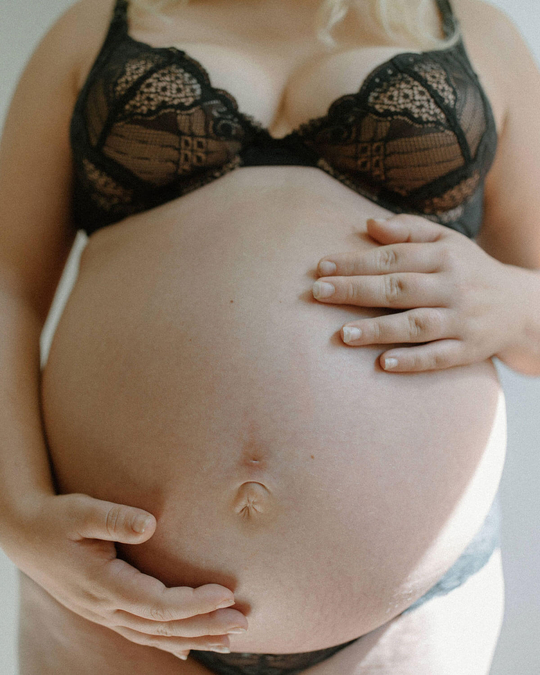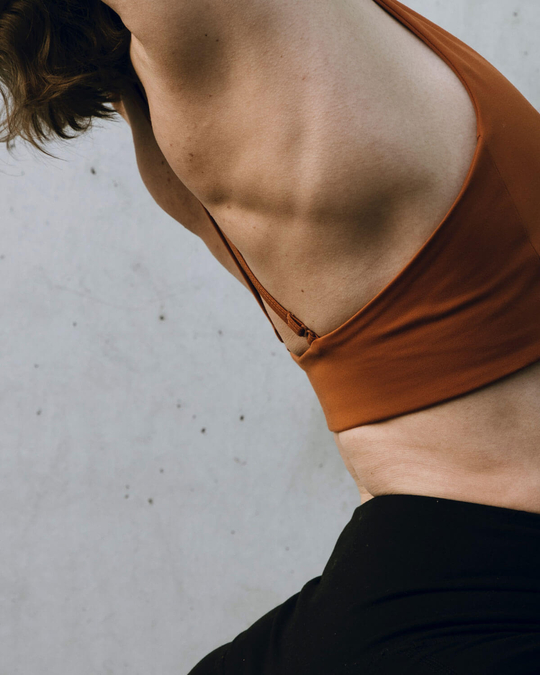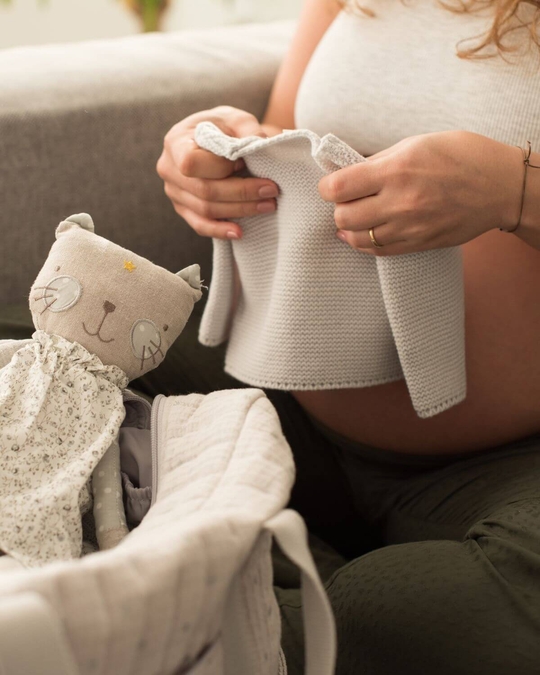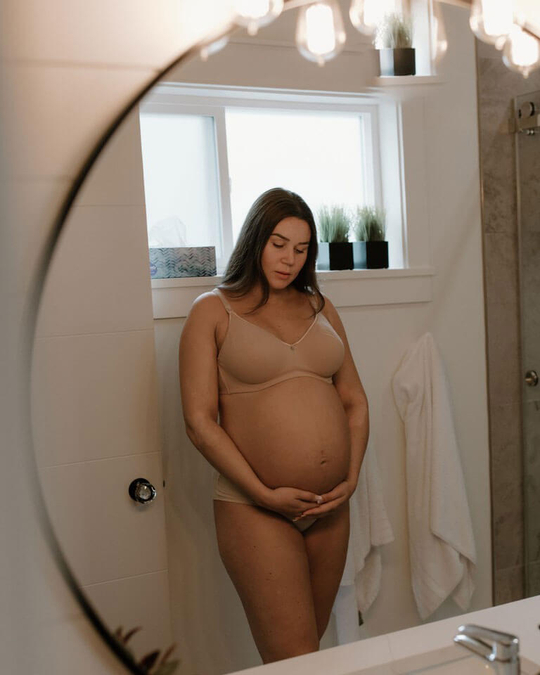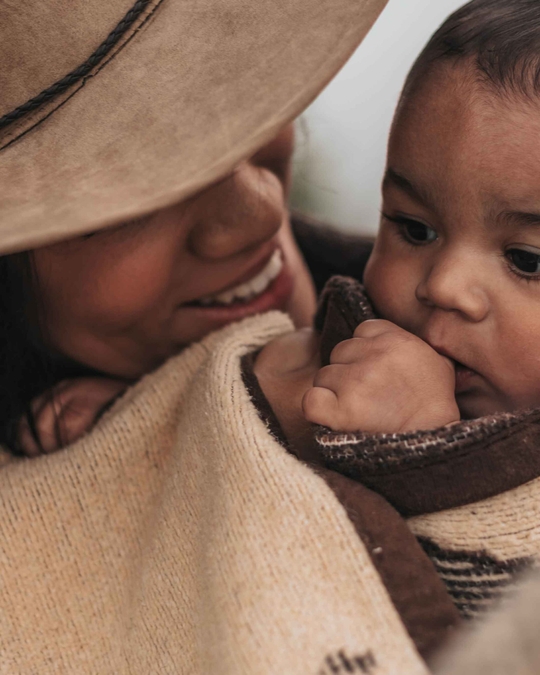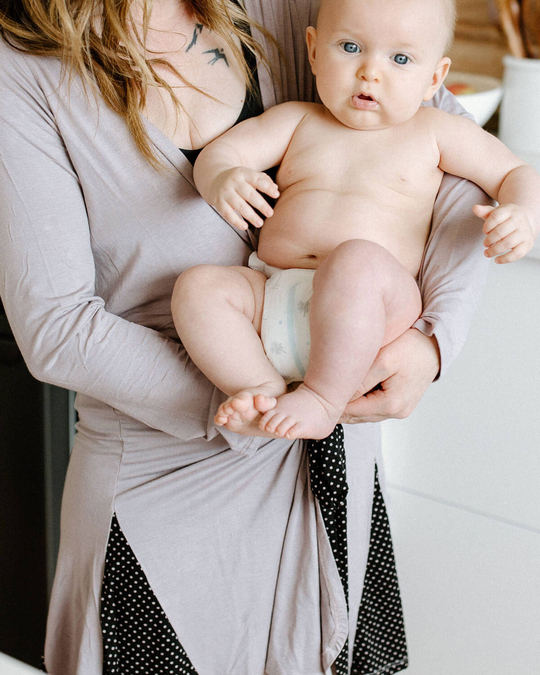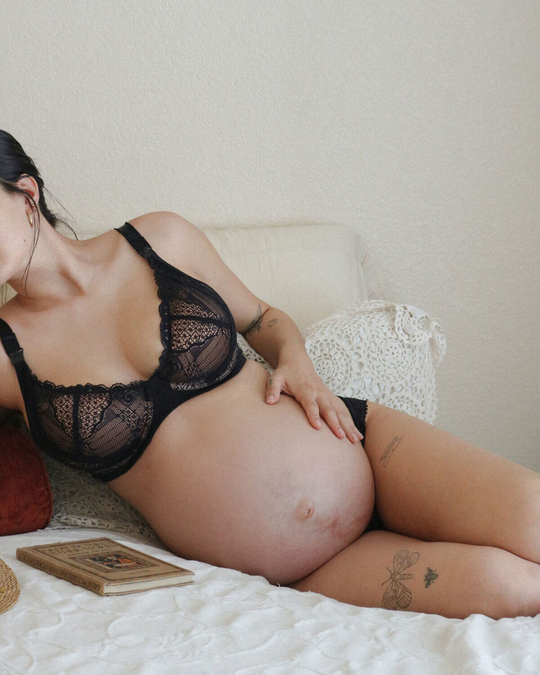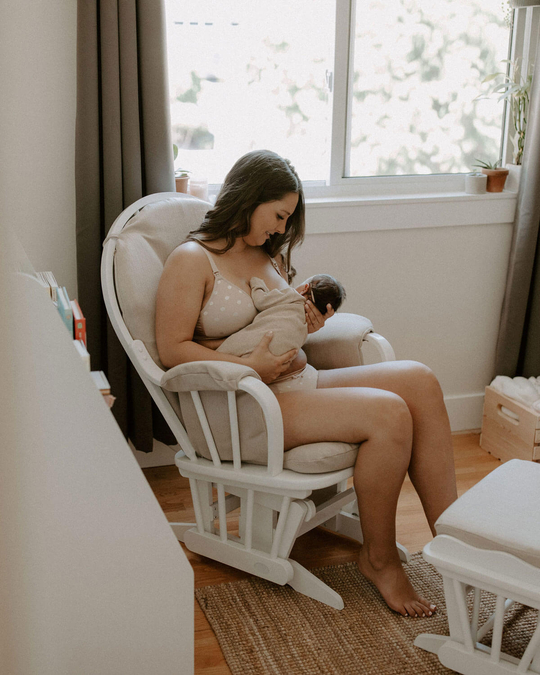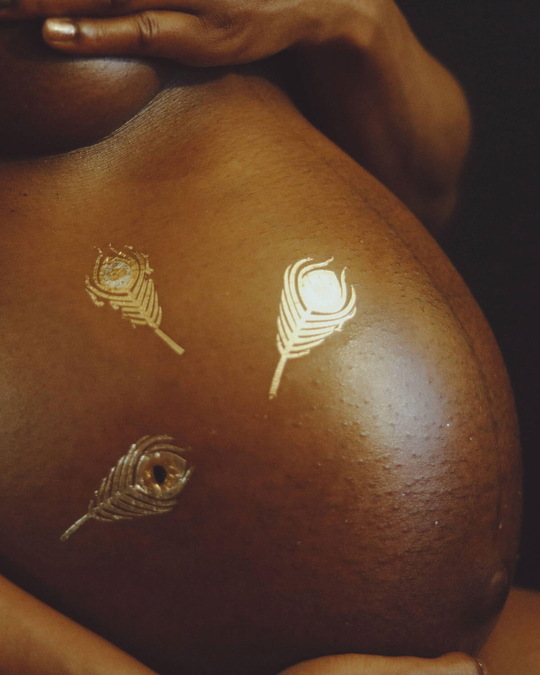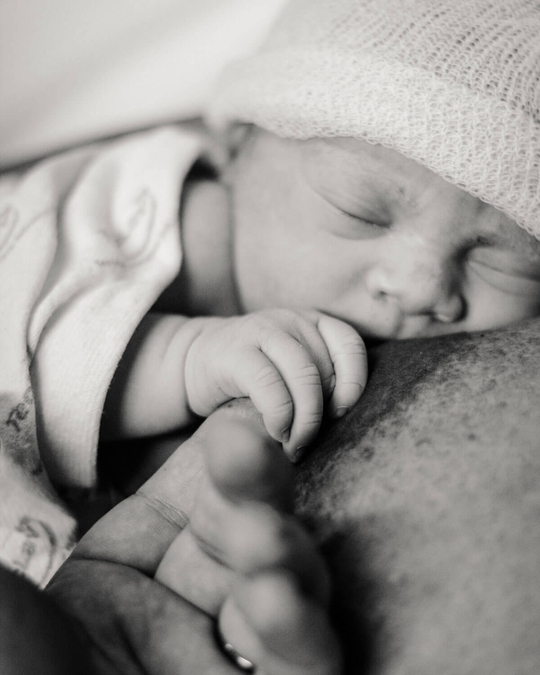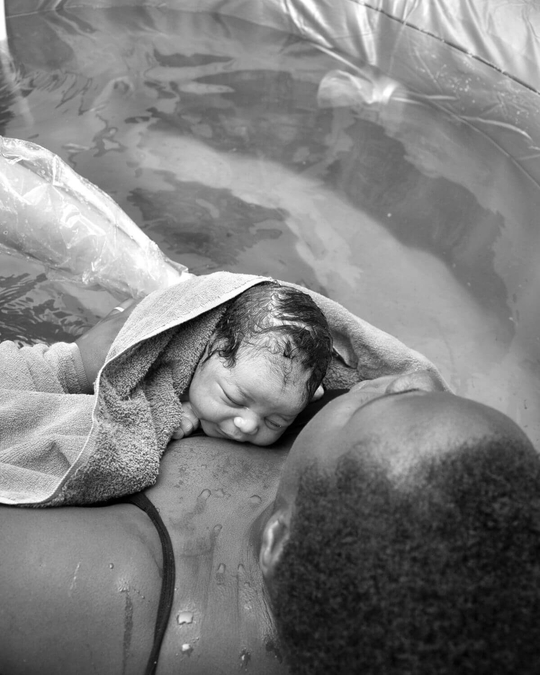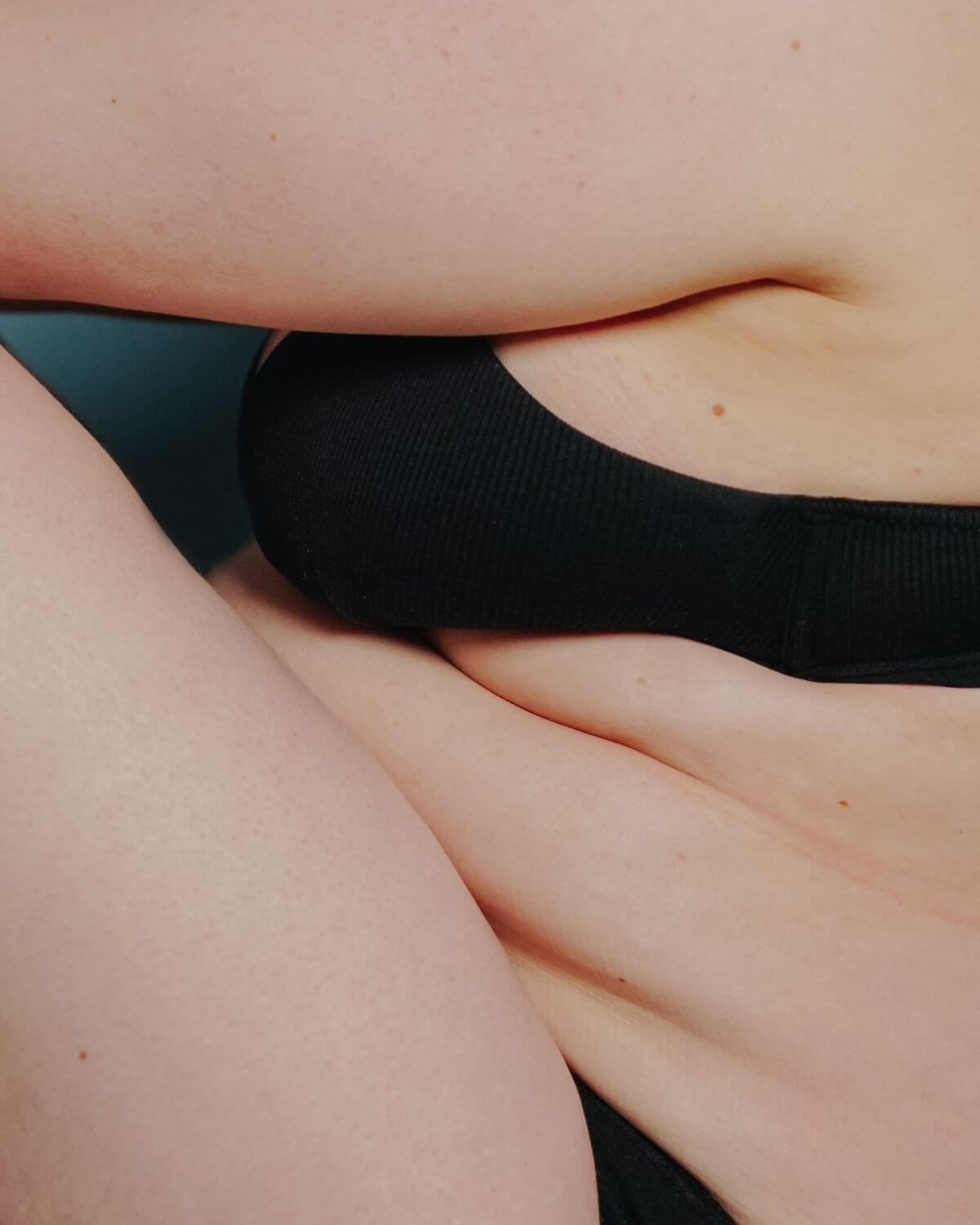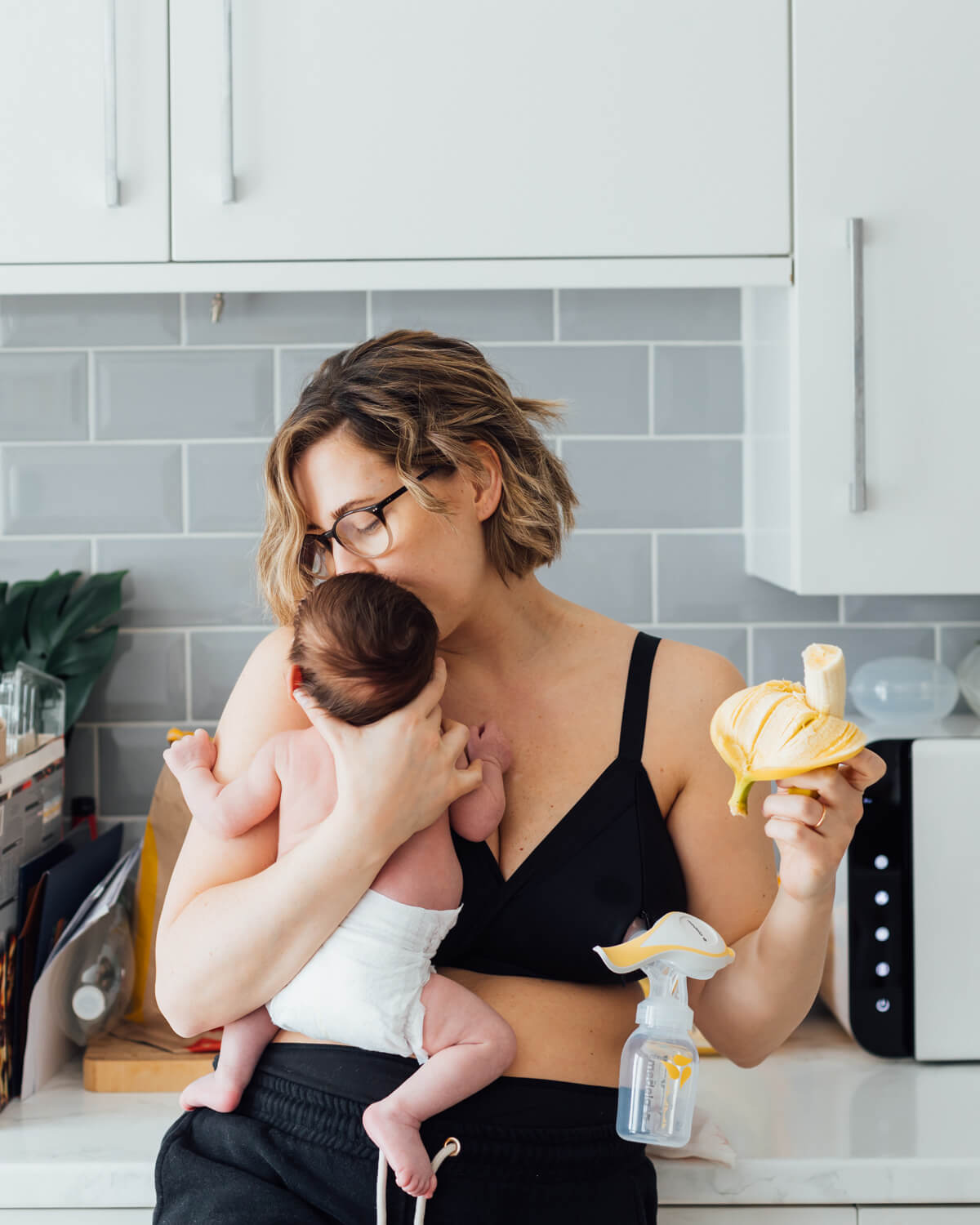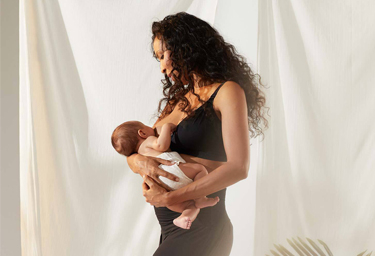In the journey of pregnancy and birth, your body undergoes what might feel like a rollercoaster of changes. For many, arriving in the postpartum phase can be challenging not just due to the challenges of navigating life with a newborn but also due to changes in our physical body.
After birth sleep is disrupted, hormones rise and fall dramatically, stress around feeding challenges can be present and amongst all of these an individual has just undergone a hugely transformative experience of becoming a parent.
It’s no surprise then, that negative body image and weight concerns are so present amongst postpartum. In fact, research has shown that there is a link between negative body image after birth and postpartum depression. Disordered eating and weight preoccupation can result and new mothers are left with being robbed of their postpartum bliss with their newborn.
While our postpartum bodies heal physically, it is important to hold space for understanding the waves of emotion that might be present around body image as well so we can work towards being fully present with our newborns in the first few days of life.
Here’s some helpful tips to carry with you as you navigate body image after birth.
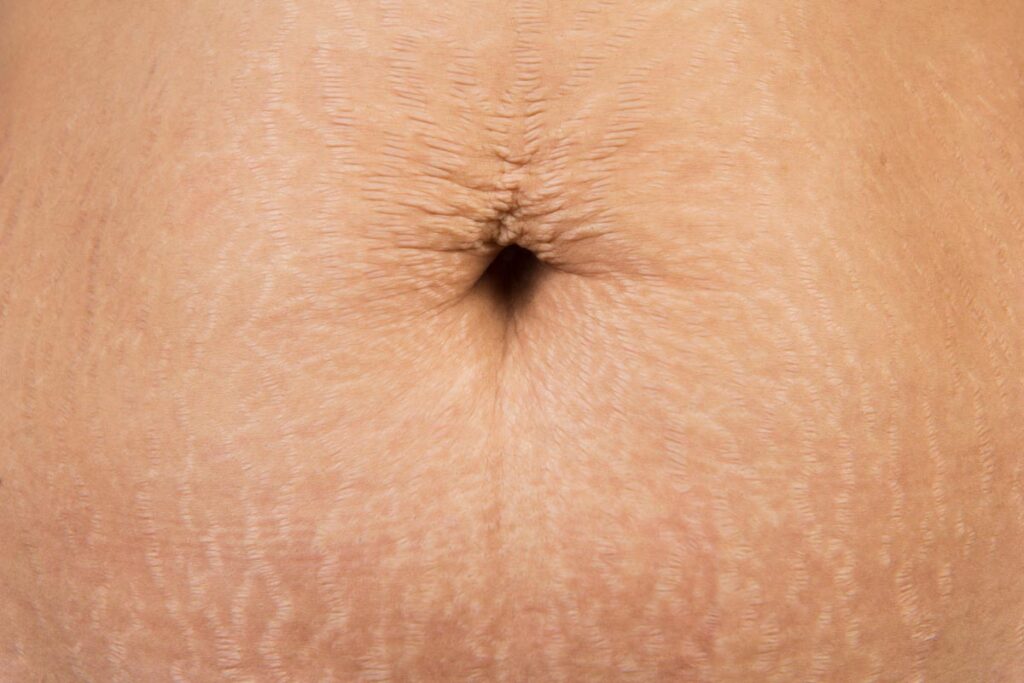
Expect that your body will feel different after birth
You likely already know that what causes us the most distress in our lives is when our ideas or expectations of something do not match up to what we hoped. The idea that you grew a baby for 9 months and that your body will automatically “bounce back”? Unhelpful, and a set up for disappointment.
If we can expect that our bodies will be different as we enter into a new season of life, we can enter into motherhood with just a touch more softness and compassion towards our recovering body.
Most individuals are not aware that after birth, the uterus which has expanded for 9 months during pregnancy, needs time to contract and heal. So many are surprised to arrive after the birth of their baby and recognize that they still might “look” pregnant, however knowing that this is a normal part of the healing process can bring perspective.
There is no “normal” when it comes to postpartum recovery
Every parent’s postpartum experience is different because every individual’s journey to pregnancy and birth is different. Some are able to revel in their body’s ability to birth life, others feel angry that they feel foreign in their body.
Just as there are no normal guidelines when it comes to pregnancy weight gain, as this is different for everyone depending on their lifestyle, nutrition intake and needs, the same is true in postpartum.
It’s important to recognize that the postpartum body is designed to protect your infant at all costs and this includes storage of energy in the form of weight for different lengths of time depending on an individual’s weight and health history and if they are breastfeeding or not.

Focus on shifts that support health, not weight
Parents who focus on weight loss and body changes during the third trimester of pregnancy and into postpartum actually experienced higher levels of body image dissatisfaction. Thus, focusing on making positive changes outside of weight can be helpful in supporting mood regulation and body image.
Focusing on eating balanced meals, finding a way to get more sleep, increasing your water intake, setting boundaries or communicating with your partner can all serve to support health overall. When you shift the focus to health versus weight you allow your body to truly heal from birth and allow your body to move towards your natural weight.
Expect that your appetite and hunger cues might be different
Given the hormonal shifts and sleep deprivation that are present in postpartum, appetite and hunger cues can appear very differently. Increased appetite is common and can present a complex dilemma for the mother who feels concerned around weight.
It is important to work towards honoring your appetite and hunger cues as they arise versus suppressing them in attempts to diet. Dieting during postpartum has been linked to higher incidences of postpartum depression and body dissatisfaction (not to mention hunger!) and can delay healing.
Hold space for not liking your body
Most conversations around postpartum body image echo some sentiment of “loving your body” in response to bringing life into the world.
While this is absolutely true that your body has accomplished such an amazing task, for the individual struggling with body image, loving your body might not feel attainable. Instead, being in your body might feel overwhelming or uncomfortable.
It is important to be able to be honest with yourself and hold space (as in allow) these feelings to arise versus pushing them away. We know that when we repress our emotions it actually doesn’t allow us to process through the experience but rather makes these experiences more painful and causes us more suffering.
You do not have to love your body postpartum. You can work towards practicing neutral statements such as “my body allows me to feed and nourish my baby every day” that do not assign good/bad judgements. This practice can allow you to cultivate awareness of your body while also not pushing you to love your body when you are struggling.
Ask for what you really need
So often our attempts at changing our weight or our body come from a place of trying to meet an internal need we have. Diet culture and the landscape of body ideals around body shape and size have led us to believe that if we change our bodies we can change the way we feel emotionally.
The experience of postpartum is no different, the idea of losing weight and “getting your pre-baby body back” might serve as a hope to get back to your old life. The idea might help provide you relief from the sleepless nights or feelings of overwhelm you experience now as a new parent.
Acknowledging these deeper needs we have to get rest, relief, ask for help, and communicate are often much more difficult than thinking that if we just lost weight everything would be “better.”
In postpartum, we can support better body image by identifying and asking for what we really need instead of looking at weight loss, which inevitably causes us more suffering.
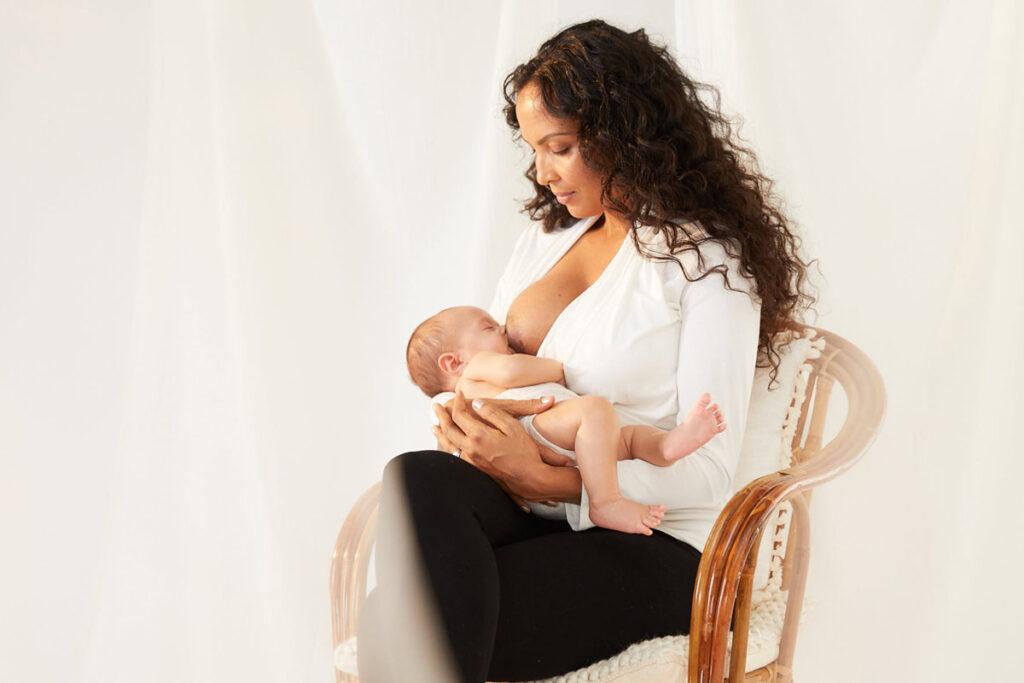
Find clothes that fit you
This is perhaps one of the most frequent concerns of new parents: feeling uncomfortable in clothes. Of course, your body has changed overnight and you may have clothes from pre-pregnancy and during pregnancy but nothing in between.
While your body heals from birth and you navigate the fourth trimester, finding clothes that fit you well and that you feel comfortable in is key to supporting a better body image.
Most often new mothers wait to purchase new clothes until they feel like they “can fit into them” however everyone’s healing timeline can be different. Cake Maternity has a variety of options that can transition from pregnancy to postpartum seamlessly and can provide you with the style and comfort you deserve as you settle into life with your new baby.
If you are struggling to navigate body image during the fourth trimester, please know there are resources designed to support you. You can reach out to therapists and dietitians trained in eating disorders and maternal mental health that have specific training in supporting individuals through postpartum body image and can help provide you with relief and healing.
Authored by Jaren Soloff, RD IBCLC
Registered Dietitian and Lactation Consultant
LIKE WHAT YOU READ?
Join CakeMama Club & get 10% OFF your first order!
Plus you’ll get tips + tricks for pregnancy, postpartum & breastfeeding, get member-only offers, earn CakeCoins every time you shop + more. Learn more









